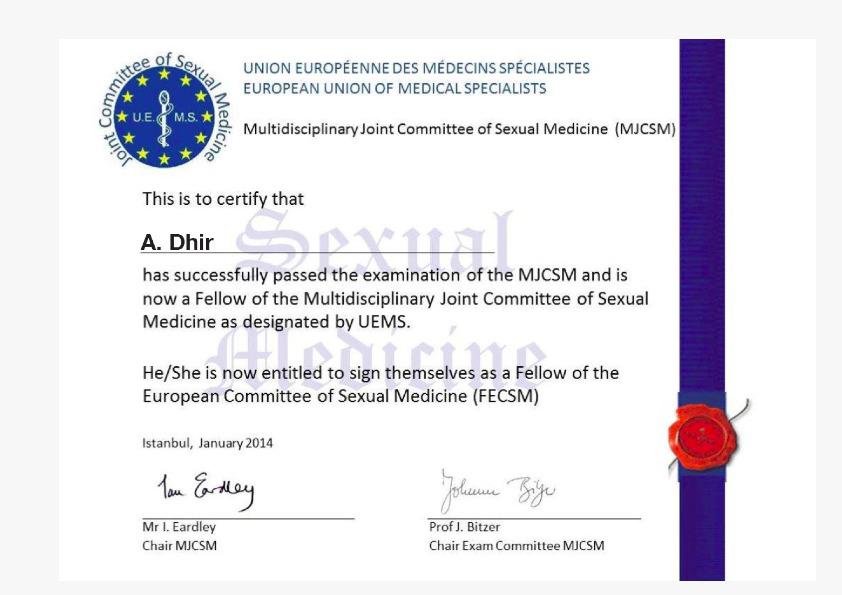
“Man survives earthquakes,epidemics, the horrors of disease, and all the agonies of the soul, but for all time his most tormenting tragedy has been, is, and will be-the tragedy of the bedroom.”
- Leo TolstoyWhat is ED?
Erectile Dysfunction (ED), often known as impotence, is the inability to get or maintain an erection for sexual intercourse. Millions of men worldwide are affected, significantly impacting their self-esteem, relationships, and general quality of life.
How Does Erectile Dysfunction Work?
It is crucial to understand the male sexual response to comprehend how ED works. The brain sends messages to the nerves in the penis when a man is sexually stimulated, prompting the blood vessels to relax and fill with blood. The effect of this increased blood flow is an erection. However, this process is disrupted in individuals with ED, leading to difficulties in achieving or maintaining an erection.
Symptoms of Erectile Dysfunction
The main symptom of ED is the inability to get or maintain an erection. However, symptoms may differ from person to person in terms of intensity and frequency. In contrast, some men might rarely experience this. The psychological side-effects of ED, such as anxiety, despair, and poor self-esteem, can also exist in addition to the physical symptoms.

How Does Erectile Dysfunction Get Diagnosed?
PATIENT HISTORY
Medical and sexual histories help determine the extent and form of Erectile dysfunction. A medical history can reveal disorders that cause ED, but a simple recounting of sexual activity can differentiate between difficulties with sexual desire, erection, ejaculation, or orgasm.
Because drug effects account for 25% of ED cases, specific prescription or illicit substances might point to a chemical reason. Certain drugs can typically be reduced or substituted to help the condition.
PHYSICAL EXAMINATION
A physical examination could identify systemic problems. For example, if the penis is not sensitive to touch, the cause might be discomfort in the neurological system.
Secondary sex features that are abnormal, such as hair patterns or breast augmentation, might indicate hormonal issues, implying that the endocrine system is implicated. A vascular issue may be discovered by examining reduced pulses in the wrists or ankles and unique penile features, such as a penis that bends or curves while erect, might indicate the source of the problem—for example, Peyronie's illness could cause a penis that bends or curves when erect.
LABORATORY TESTS
Several laboratory tests can aid in the diagnosis of ED. Systemic disease tests include blood counts, urinalysis, lipid profiles, and creatinine and liver enzyme assays. Measuring the quantity of free testosterone in the blood can reveal endocrine system issues and is recommended in individuals with diminished sexual drive.
OTHER TESTS
Nocturnal Penile Tumescence (NPT) Test
Healthy men of all ages have nocturnal erections. REM sleep accounts for eighty percent of these. The average guy has three to five NPT episodes every night, each lasting 30 to 60 minutes. Total nocturnal erection time decreases with age.
NPT may be monitored using a variety of techniques. Rather than NPT sleep labs, monitoring is usually done using a simple outpatient device. These devices record the number, duration, stiffness, and circumference of penile erections electronically.
Monitoring erections while sleeping (nocturnal penile tumescence) can aid in the elimination of particular psychological reasons for ED. During sleep, healthy males develop involuntary erections.
If nocturnal erections do not occur, the cause is likely physical rather than psychological. However, nocturnal erection tests are not entirely trustworthy. Such tests have not been standardized, nor have scientists decided when to use them for the best results.
Neuro-urologic testing tries to detect neurologic disorders such as diabetes or pelvic injury and to diagnose reversible neurologic problems such as nerve damage induced by long-distance biking. These tests also aid in determining if a referral to a neurologist is required. The following are the most regularly utilized tests:
- The most basic and widely used test for assessing and diagnosing ED is the combined Intracavernous Injection and Stimulation (CIS) Test. It employs penile injections, visual or physical sexual stimulation, and an erection.
- Color Doppler Ultrasound - This test produces an image of the penile arteries using safe, non-invasive sound waves, allowing professionals to analyze the arteries' functionality.
- Cavernosometry and Cavernosography – These tests assess penile veins and aid in the detection of venous leaks.
PSYCHOSOCIAL EXAMINATION
Erectile dysfunction can result in psychological problems such as performance anxiety, a troubled relationship, a lack of sexual arousal, and mental health diseases such as depression and schizophrenia. As a result, your doctor may advise you to meet with a psychologist to discuss current sexual issues, partner relationships, and any mental symptoms you are having.
Discover effective solutions for Erectile Dysfunction with the expertise of Dr. Anup Dhir, renowned specialist in the field. Schedule a consultation today to benefit from his extensive knowledge and personalized treatment options."
Remember, it's always a good idea to research and consult with multiple medical professionals to make informed decisions about your healthcare needs.
Causes of Erectile Dysfunction
● Old Age
● Decreased Blood flow
● Diabetes
● High Blood Pressure (Hypertension)
● Pelvic Surgery (Prostate, Bladder, Rectal)
● Multiple Sclerosis, Spinal Cord Injury, and Nervous System Disorders
● Hormonal Problems
● Depression and Psychological Problems
● Cigarette Smoking, Excessive Use of Alcohol, Drug Abuse
● Medications
● Sickle Cell Anemia
● Peyronie's Disease
● Premature Ejaculation
OLD AGE
Many bodily functions typically slow down as men age. From a sexual standpoint, this might manifest as decreased erection firmness, shorter erection duration, or a longer "recovery time" between erections.
These changes might result from decreased testosterone production, reduced blood flow, or other disorders that affect men as they age. Most sexual changes linked with old age are caused by the combination of the factors listed below.
DECREASED BLOOD FLOW
Reduction in blood supply to the penis will affect erection quality. Erections will be weak and/or temporary. Arteriosclerosis (clogged arteries), excessive blood pressure, or pelvic trauma can all result in decreased blood flow.
Men with blocked arteries in their hearts sometimes have the same issue with the arteries that provide blood to their penis.
DIABETES
Diabetes can interfere with erections in various ways, and erectile dysfunction worsens as a man's diabetes progresses. Half of all diabetic males have some form of erectile dysfunction.
Diabetes can impair nerve impulse transmission and reception. This disorder, known as peripheral neuropathy, can damage diabetics' hands and feet.
Erections are more challenging to achieve when nerve function is impaired. Diabetes can also impair blood flow to the penis. Men with diabetes frequently have lower erection quality or quantity. Engorgement of penile tissue, which leads to an erection, requires healthy blood vessels.
HIGH BLOOD PRESSURE (HYPERTENSION)
Erections can be affected by hypertension due to the changes it creates in the blood vessels or by the drugs used to treat it. Because hypertension causes the arteries to lose flexibility, they cannot handle the onrush of blood required for an erection.
The veins may be affected by hypertension, allowing the blood that does flow into the penis to escape just as rapidly. The consequences of hypertension on erectile function accumulate over time and may occur before a man is aware that he has hypertension.
PELVIC SURGERY (PROSTATE, BLADDER, RECTAL)
Injury to the nerves or blood vessels may result when surgery is performed in the pelvic area. Even with "nerve-sparing" procedures, the nerves may be temporarily or permanently altered. Extensive surgery for bladder or rectal cancers removes much tissue, and impotence may occur.
SPINAL CORD INJURY, MULTIPLE SCLEROSIS, AND NERVOUS SYSTEM DISORDERS
A spinal cord injury impacts the neural pathways needed to produce an erection. Reflex erections can occur in males who have had a spinal cord injury. These, however, are unexpected and frequently relatively brief. Multiple sclerosis disrupts nerve impulses in the body.
Furthermore, multiple sclerosis can cause generalized weakness and immobility, making it difficult to obtain an erection. Any other condition that disrupts the nervous system might make excellent erections difficult or impossible.
HORMONAL PROBLEMS
Hormones have an essential role in sexual function. They are in charge of the sexual urge (libido). Hormonal abnormalities, such as low testosterone or excessive prolactin, can cause libido disruption. A simple blood test can detect hormonal abnormalities, and subsequent testing and therapy depend on the underlying reason for the imbalance.
DEPRESSION AND PSYCHOLOGICAL PROBLEMS
Depression, as well as the drugs used to treat it, can cause erectile dysfunction. Premature ejaculation issues, as well as the worry that comes with them, can cause erectile dysfunction.
CIGARETTE SMOKING, EXCESSIVE USE OF ALCOHOL, DRUG ABUSE
Smoking, excessive alcohol, and recreational drug usage can all impair erectile function. The consequences might be either transient or permanent.
Drinking a lot of alcohol might cause temporary erectile dysfunction. Smoking and drinking can have long-term impacts on blood vessels and neurons. Substances included in recreational drugs can harm both the arteries and the nerves.
MEDICATIONS
Medications used to treat this kind of condition might impair erectile function. Drugs used to treat high blood pressure and depression are two of the most prevalent.
Changing drugs may aid in the restoration of sexual function. Medical changes must always be authorized and monitored by a medical practitioner. Discuss with your doctor the idea of switching blood pressure drugs. Many hypertension drugs do not cause erection difficulties.
SICKLE CELL ANEMIA
Sickle cell anemia can cause priapism or prolonged, painful erections. These prolonged erections might harm the inner tissue of the penis, causing erectile dysfunction. Scar tissue may also cause an unpleasant bending or kinking of the penis.
PEYRONIE'S DISEASE
Peyronie's disease is defined by a painful bending of the erect penis. The specific etiology of Peyronie's disease is unknown. However, there may be some link to trauma. Because of the curvature, this issue might cause impotence and/or inability to have intercourse.
Are you depressed and suffering from poor self-esteem? Don't worry, you're not alone! Many guys have erectile dysfunction. Schedule an appointment with Dr. Anup Dhir now.
Erectile Dysfunction Treatment in India
Medication, lifestyle modifications, counseling, or cutting-edge procedures like Penile Implants or Shockwave Therapy are all available as treatments for Erectile Dysfunction. Dr. Anup Dhir evaluates your condition and develops a personalized treatment plan.
How is Erectile Dysfunction treated?
A considerable proportion of men have ED due to treatable psychological factors. Following the treatment of a physical reason, self-esteem issues may continue to affect normal function and performance. Psychological therapy may be beneficial when combined with medical or surgical treatment.
Sex therapists stress the need for men and their partners to be motivated and willing to adjust to psychological and behavioral changes, particularly those caused by medical or surgical therapy.
Treatment methods for ED that are now accessible, in addition to lifestyle modifications and sex therapy, include the following:
- PDE-5 inhibitors
Viagra®, Levitra®, and Cialis® has changed how erectile dysfunction is treated. These FDA-approved drugs help more than half of men with penile stiffness. They are not, however, a successful therapy for all guys!
Some men experience adverse effects, while others do not get a satisfactory erection with these drugs. Some men cannot take them because they are on nitrates or alpha-blockers, while others find the drugs too pricey. However, Indian PDE-5 inhibitors are reasonably priced.
- Testosterone supplements
Male ED caused by low testosterone levels can be treated with testosterone injections, patches, and gels. This therapy restores your male hormone levels to normal.
- Penile injection therapy
Caverject® and Edex® (alprostadil) are FDA-approved drugs that, when injected into the penile erection chambers, can cause an erection. Although some men find this a suitable answer to their erection difficulties, penile injection treatment is frequently uncomfortable. After a while, many men cease penile injection treatment. Papaverine injections have been replaced with these injections.
- Vacuum constriction devices (VCD's)
VCDs comprise a plastic cylinder, a vacuum pump, and a constricting band. VCDs have evolved and are now a viable option for confident men. Many men, however, find these gadgets to be inconvenient and dirty. They require a constricting ring at the penis base, which restricts penile blood flow and can prevent ejaculation.
- Penile implants
Men who do not react to milder therapies are frequently candidates for penile implants. These implants, which might be malleable or inflatable, are performed regularly at our clinic. Implants are entirely internal and are inserted in the penile erection chambers and surrounding tissues.
The penis and scrotum will seem normal once you have recovered. When inflated, these implants provide a firm, dependable erection, and a natural-looking penis when deflated. You may have sex as frequently as you want and for as long as you want with a penile implant. An implant may restore a man's sexual confidence and erections, a considerable advantage.
- Shock wave therapy
Shockwave therapy is a non-invasive treatment for erectile dysfunction that uses low-intensity sound waves to stimulate blood flow and improve penile tissue health. It is a safe and effective treatment with few side effects, and it can be an option for men who have not responded to other treatments.
- P shot or PRP injection.
A P-shot or PRP injection is a procedure that involves injecting platelet-rich plasma (PRP) into the penis. PRP is a concentrated form of blood plasma that contains growth factors that can help to improve blood flow and tissue repair in the penis. This can lead to improvements in erectile function.
Dr. Anup Dhir can help you get back to your active life. Schedule an appointment today to discuss ED treatment.
Dr. Anup Dhir, a leading expert in the field, offers a holistic and patient-centric approach to treating Erectile Dysfunction Treatment in Delhi. His extensive experience and compassionate care have helped numerous men regain confidence and intimate relationships. He was awarded the Fellowship of the European Committee of Sexual Medicine (FECSM) in 2014. He is one of the few specialists in India who is trained & qualified in sexual medicine.

